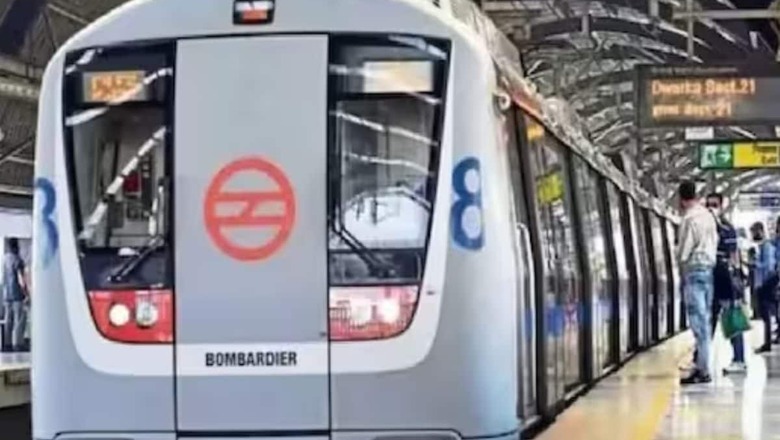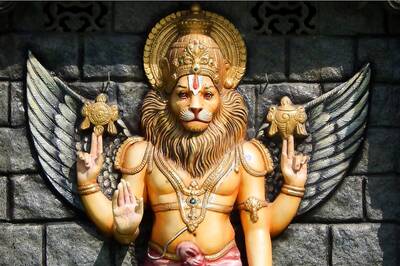
views
The Delhi Metro Rail Corporation (DMRC) has proposed a revised route plan for the extension of the Blue Line from Noida Electronic City, integrating the last proposed station at Sahibabad with the existing Rapid Rail station.
An exclusive report by The Times of India unveils the details of the project that aims to enhance multi-modal connectivity.
According to the DMRC report, the Sahibabad metro station will be strategically located opposite the current Sahibabad Rapid Rail station in Vasundhara. The two stations, situated on either side of the Link Road, will be connected by a foot overbridge, allowing passengers to transition between the Blue Line and the Delhi-Meerut Rapid Rail corridor without exiting the premises.
The initial proposal to extend the Blue Line to Sahibabad was submitted by DMRC in 2018, and since then, the plan has undergone several revisions to streamline costs. The integration of the Sahibabad metro station with the Rapid Rail became imperative as the alignment work for the Rapid Rail progressed.
Manvendra Singh, the Chief Engineer at Ghaziabad Development Authority, emphasized the focus on multi-modal integration. “The 5.2km metro route will culminate at Sahibabad and will be integrated with the Namo Bharat station on the other side of Link Road,” he stated.
The proposed metro route, as outlined in the DMRC report, will consist of five stations through Indirapuram and Vasundhara. These stations include Vaibhav Khand, Shakti Khand, DPS Indirapuram, Vasundhara Sector 5, and Sahibabad. The elevated route will eliminate the need for land acquisition, with pillars erected along road medians.
The other arm of the Blue Line, connecting Dwarka to Vaishali, will also interface with the Rapid Rail at Anand Vihar in Delhi. The Vaishali station is conveniently located near the Rapid Rail’s Sahibabad station on the same Link Road.
To finance the expected expenditure of Rs. 1,517 crore, the Uttar Pradesh government has developed a cost-sharing method. Under this arrangement, the state will contribute 80 percent of the funds through its agencies, with the Ghaziabad Development Authority and the Housing Board equally sharing the state’s portion. The remaining 20 percent of funds will be sourced from the central government.
Disagreements over fund-sharing had previously impeded the progress of the metro extension. Initially, the UP government was slated to bear 50 percent of the project cost, with the Centre funding 20 percent, and other agencies covering the remaining 30 percent. However, this plan was rejected by the state government.
In response to a cash crunch, the Ghaziabad Development Authority is exploring the option of obtaining a loan from the NCR Planning Board to fund its share of the project, according to Singh. The revised and integrated metro extension plan aims to bolster transportation infrastructure and enhance connectivity in the National Capital Region.
















Comments
0 comment